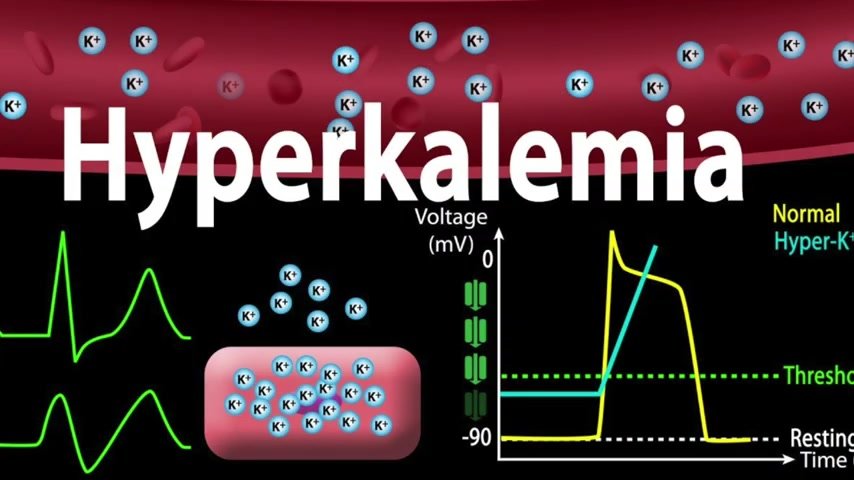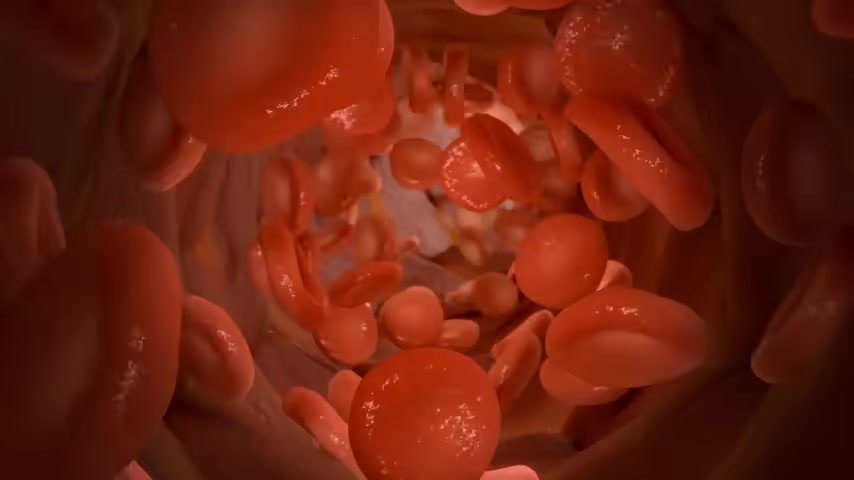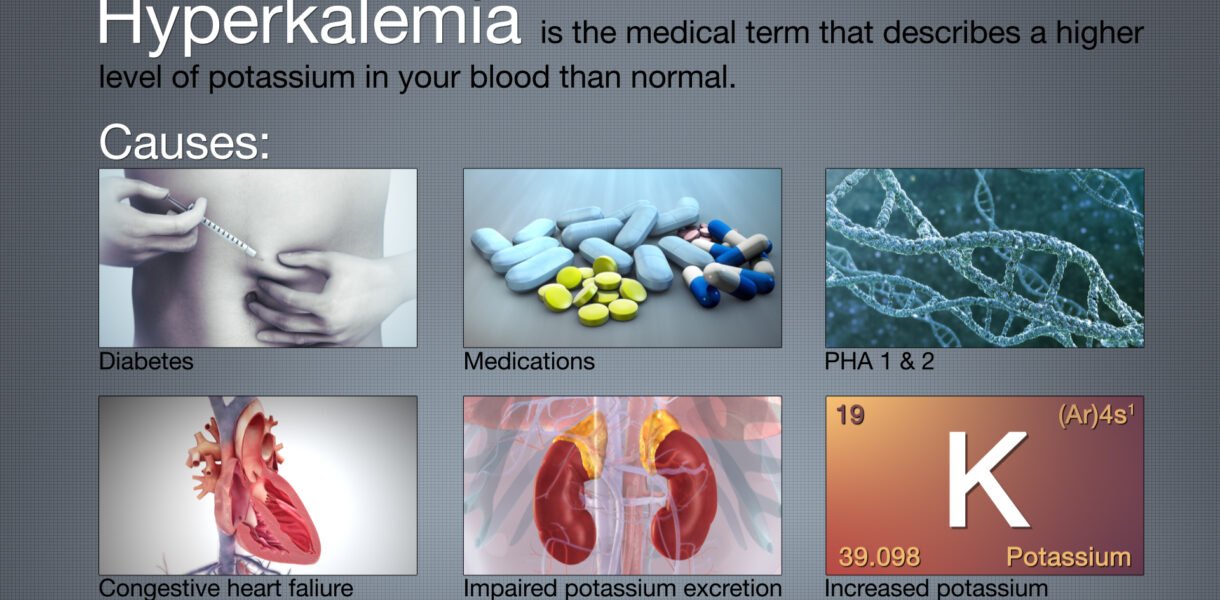Table of Contents
Learn about hyperkalemia, its symptoms, causes, and treatments. Understand the risks of high blood potassium levels and how to manage them effectively.
Hyperkalemia, or high potassium levels in the blood, is a potentially serious condition that can have significant health implications if not properly managed.
Potassium is a vital mineral that plays a crucial role in various bodily functions, including muscle contractions, nerve signals, and heart function. While most of the potassium in your body is stored inside your cells, elevated levels in the bloodstream can lead to symptoms such as palpitations, muscle pain, and weakness. Understanding the causes, symptoms, and treatment options for hyperkalemia is essential for maintaining optimal health.
In this article, we will explore the key aspects of hyperkalemia, including its definition, potential causes, symptoms, and effective treatment strategies. Whether you are looking to prevent hyperkalemia or manage existing high potassium levels, this comprehensive guide will provide you with the knowledge you need to stay healthy.
Hyperkalemia (High Blood Potassium Levels)
We’re gonna talk about high levels of potassium in your blood .

First thing you need to know is the name of that is hyperkalemia .
When you have a deficiency of potassium in the blood , that’s called hypokalemia .
The other thing to know , which is very important , is that 98% of all your potassium in your body is inside your cell , not outside the cell , and not in your blood .
So when we’re evaluating hyperkalemia , we’re really looking at this 2% .
So we don’t really see the whole picture of what’s going on .
It’s very rare .
| Aspect | Details |
|---|---|
| Definition | Hyperkalemia refers to high levels of potassium in the blood. |
| Potassium Distribution | 98% of the potassium in your body is inside your cells, not in your blood. |
| Symptoms | Symptoms of hyperkalemia are rare but can include palpitations, tiredness, muscle pain, and weakness. |
| Pseudo Hyperkalemia | Pseudo hyperkalemia can occur due to blood cell damage during testing, leading to false high potassium levels. |
| Causes | – Advanced kidney disease – Addison’s disease – Certain medications – Rarely, excessive potassium intake |
| Treatment | – Calcium – Insulin – Dextrose – Sodium bicarbonate |
| Differentiation | It’s important to differentiate hyperkalemia from hypokalemia, which is more common and characterized by symptoms like leg cramps, weakness, and abnormal heart rhythms. |
| Testing | Testing intracellular potassium levels can provide more valuable information than measuring potassium in the blood. |
There are very little symptoms that are associated with this .
If it’s severe , you can get palpitations .

You can be very tired and have muscle pain and weakness .
There’s a condition called pseudo hyperkalemia .
In this situation , when they’re drawing your blood to do get the sample to do the testing , If they damage your blood cells as they’re drawing it out , there’s some type of trauma involved , what happens is it cracks open these cells and leaks out more Potassium giving this pseudo or false impression that you have high levels of Potassium .
So just wanna bring this point up right here .
Now there’s a couple reasons why you might have high levels of potassium in the blood .
Hyperkalemia causes

Advanced kidney disease is probably the number 1 because when the kidney is damaged , you don’t release certain minerals , especially potassium .
Addison’s disease is another reason .
This is an autoimmune condition of your adrenal glands in which you’re losing a ton of sodium .
And when you’re losing all the sodium , you’re also retaining potassium .
So you would not necessarily ever wanna give someone potassium if they had advanced kidney disease or Addison’s disease .

There’s a couple medications that can also raise your potassium in the blood .
NSAIDs for pain and certain high blood pressure medications .
Now the other thing to know is excessive intake of potassium is not a primary cause of hyperkalemia .
Why ?
Because your body has certain mechanisms to get rid of excessive potassium .
And this is very different from sodium .
We tend to retain sodium , so if we take too much potassium , our bodies can get rid of it very easily through the urine .
Typical hyperkalemia treatment
Now what’s interesting is the treatment for hyperkalemia is taking certain types of calcium or injecting the person with insulin , and I’m talking medical treatment , or dextrose , which is a sugar , or sodium bicarbonate , which is baking soda .
Now what I find interesting is these 2 things right here , insulin and dextrose .

So if you’re in a high carb diet and you’re raising insulin or you’re gonna elevate sugar , you’re gonna create more of a problem with this right here , not this right here .
Hypokalemia
Now it’s also important to talk about the opposite of hyperkalemia , hypokalemia , which is way more common .
It’s the most common form of electrolyte imbalance when someone’s hospitalized .
Symptoms of hypokalemia

And here are a few symptoms , leg cramps , weakness , constipation , abnormal heart rhythm issues , arrhythmias , etcetera .
Testing for hyperkalemia and hypokalemia
And the main point I wanna bring up , which is the last point , is you have to realize that the majority the vast majority of potassium is inside the cell .
And so measuring it based on the blood is not a good way to determine if you have too much or too little potassium .
There is another test .
It’s an intracellular potassium test , which is much more valuable .
And I’m gonna put a link down below if you wanna know more information about that .
I would highly suggest to get this test if you’re interested in knowing your intracellular potassium and intracellular magnesium .

It gives you a lot of great data , and it can also tell you if you’re at risk for getting arrhythmias because that would be 1 of the big symptoms of that , or even high blood pressure .
key Points:
- 98% of all of the potassium in your body is actually inside of your cells, not outside of the cells or in your blood. When evaluating hyperkalemia, we’re really looking at just the 2%, so we’re not seeing the whole picture of what’s going on.
- Considering that the majority of the potassium is inside of the cell, measuring potassium levels based on the blood may not be a good way to determine if a person has too much or too little potassium. However, there is an intracellular potassium test that I believe is much more valuable.
A few important things about hyperkalemia:
• It’s very rare
• There are very few symptoms associated with hyperkalemia (severe cases may cause palpitations, tiredness, muscle pain, and muscle weakness)
• There is a condition called pseudohyperkalemia (which is basically a false impression that you have high levels of potassium in the blood)
• Excessive intake of potassium is not a primary cause of hyperkalemia
A few causes of hyperkalemia:
• Advanced kidney disease
• Addison’s disease
• NSAIDs
• Certain high blood pressure medications
The typical treatment for hyperkalemia typically involves taking:
• Calcium
• Insulin
• Dextrose
• Sodium bicarbonate
On the other hand, A deficiency of potassium in the blood is called hypokalemia. Hypokalemia is the most common form of electrolyte imbalance when someone is hospitalized.
A few symptoms of hypokalemia:
• Leg cramps
• Weakness
• Constipation
• Abnormal heart rhythm issues
DATA:
https://www.ncbi.nlm.nih.gov/books/NBK470284
FAQ:
What is the best treatment for hyperkalemia?
The best treatment for hyperkalemia (high potassium levels) often involves a combination of dietary changes, medications, and in severe cases, dialysis. Immediate measures may include the administration of calcium gluconate, insulin with glucose, or diuretics to stabilize the heart and reduce potassium levels quickly.
What is the primary treatment of hyperkalemia?
The primary treatment of hyperkalemia includes:
- Calcium Gluconate: To protect the heart.
- Insulin with Glucose: To shift potassium into cells.
- Diuretics: To increase potassium excretion.
- Dietary Restrictions: Reducing potassium-rich foods.
How to reduce high potassium quickly?
To quickly reduce high potassium levels:
- Intravenous Calcium: To protect the heart.
- Insulin with Glucose: To drive potassium into cells.
- Sodium Bicarbonate: If acidosis is present.
- Diuretics or Dialysis: To remove potassium from the body.
What is the new treatment for hyperkalemia?
New treatments for hyperkalemia include newer potassium binders like Patiromer (Veltassa) and Sodium Zirconium Cyclosilicate (Lokelma). These medications help remove excess potassium from the body through the gastrointestinal tract.
Hyperkalemia treatment
Treatment options for hyperkalemia include:
- Calcium Gluconate: To stabilize the heart.
- Insulin with Glucose: To drive potassium into cells.
- Diuretics: To enhance potassium excretion.
- Potassium Binders: Such as Patiromer or Sodium Zirconium Cyclosilicate.
- Dialysis: In severe cases, to remove potassium directly.
How to flush excess potassium
To flush excess potassium from the body:
- Increase Fluid Intake: Promotes urine production.
- Use Diuretics: Increases potassium excretion.
- Dietary Changes: Avoid high-potassium foods.
- Potassium Binders: Medications to bind potassium in the gut.
What causes high potassium levels in elderly?
High potassium levels in the elderly can be caused by:
- Chronic Kidney Disease: Reduced potassium excretion.
- Medications: Such as ACE inhibitors, NSAIDs, and potassium-sparing diuretics.
- Dehydration: Increases potassium concentration.
- diabetes: Poor kidney function due to diabetes.
- Addison’s Disease: Affects adrenal gland function.
What are the 10 signs of high potassium?
Signs of high potassium include:
- Muscle Weakness
- Fatigue
- Nausea
- Irregular Heartbeats
- Palpitations
- Shortness of Breath
- Chest Pain
- Tingling or Numbness
- Muscle Cramps
- Paralysis
What causes high potassium levels in adults?
Causes of high potassium levels in adults include:
- Kidney Disease: Impaired excretion.
- Medications: Such as ACE inhibitors, ARBs, NSAIDs, and potassium-sparing diuretics.
- Excessive Potassium Intake: From diet or supplements.
- Adrenal Insufficiency: Affects potassium balance.
- Cellular Breakdown: From injury, burns, or hemolysis.
High potassium treatment in hospital
In the hospital, treatment for high potassium includes:
- Calcium Gluconate: To protect the heart.
- Insulin with Glucose: To shift potassium into cells.
- Sodium Bicarbonate: If acidosis is present.
- Diuretics: To enhance potassium excretion.
- Dialysis: For severe hyperkalemia.
What drugs can cause high potassium levels?
Drugs that can cause high potassium include:
- ACE Inhibitors: (e.g., Lisinopril)
- ARB’s: (e.g., Losartan)
- Potassium-Sparing Diuretics: (e.g., Spironolactone)
- NSAIDs: (e.g., Ibuprofen)
- Beta-Blockers: (e.g., Atenolol)
- Heparin
Hyperkalemia treatment protocol
The hyperkalemia treatment protocol typically involves:
- Stabilize Heart: Administer calcium gluconate.
- Shift Potassium into Cells: Use insulin with glucose or sodium bicarbonate.
- Remove Potassium: Use diuretics, potassium binders, or dialysis.
- Monitor and Adjust: Continuous ECG and potassium level monitoring. Adjust treatment based on response.
What is hypokalemia a symptom of?
Hypokalemia (low potassium levels) can be a symptom of:
- Chronic Kidney Disease: Impaired potassium reabsorption.
- Diuretics Use: Especially loop and thiazide diuretics.
- Vomiting or Diarrhea: Causes significant potassium loss.
- Hyperaldosteronism: Excess production of aldosterone.
- Magnesium Deficiency: Often associated with low potassium.
- Cushing’s Syndrome: Elevated cortisol levels.
- Inadequate Dietary Intake: Insufficient potassium consumption.
What medication is used for hypokalemia?
Medications used to treat hypokalemia include:
- Potassium Chloride: The most commonly used supplement.
- Potassium Citrate or Gluconate: Alternative forms of potassium supplements.
- Spironolactone: A potassium-sparing diuretic that helps retain potassium.
- Oral Potassium Supplements: Tablets or liquid forms for mild cases.
- Intravenous Potassium: Used in severe cases or when oral administration is not feasible.
How to correct hypokalemia?
To correct hypokalemia:
- Dietary Changes: Increase intake of potassium-rich foods (bananas, oranges, spinach, potatoes).
- Oral Potassium Supplements: Potassium chloride tablets or liquid.
- Intravenous Potassium: For severe cases or if oral intake is not possible.
- Address Underlying Causes: Treat conditions causing potassium loss (e.g., stop diuretics if possible, treat vomiting or diarrhea).
- Monitor and Adjust: Regularly check potassium levels and adjust treatment accordingly.
What is the first line treatment for hypokalemia?
The first-line treatment for hypokalemia generally includes:
- Potassium Supplements: Oral potassium chloride is commonly used.
- Dietary Adjustment: Increase intake of potassium-rich foods.
- Addressing Underlying Causes: Treating the root cause of potassium loss.
- Monitoring: Regular monitoring of potassium levels to ensure they return to normal.




